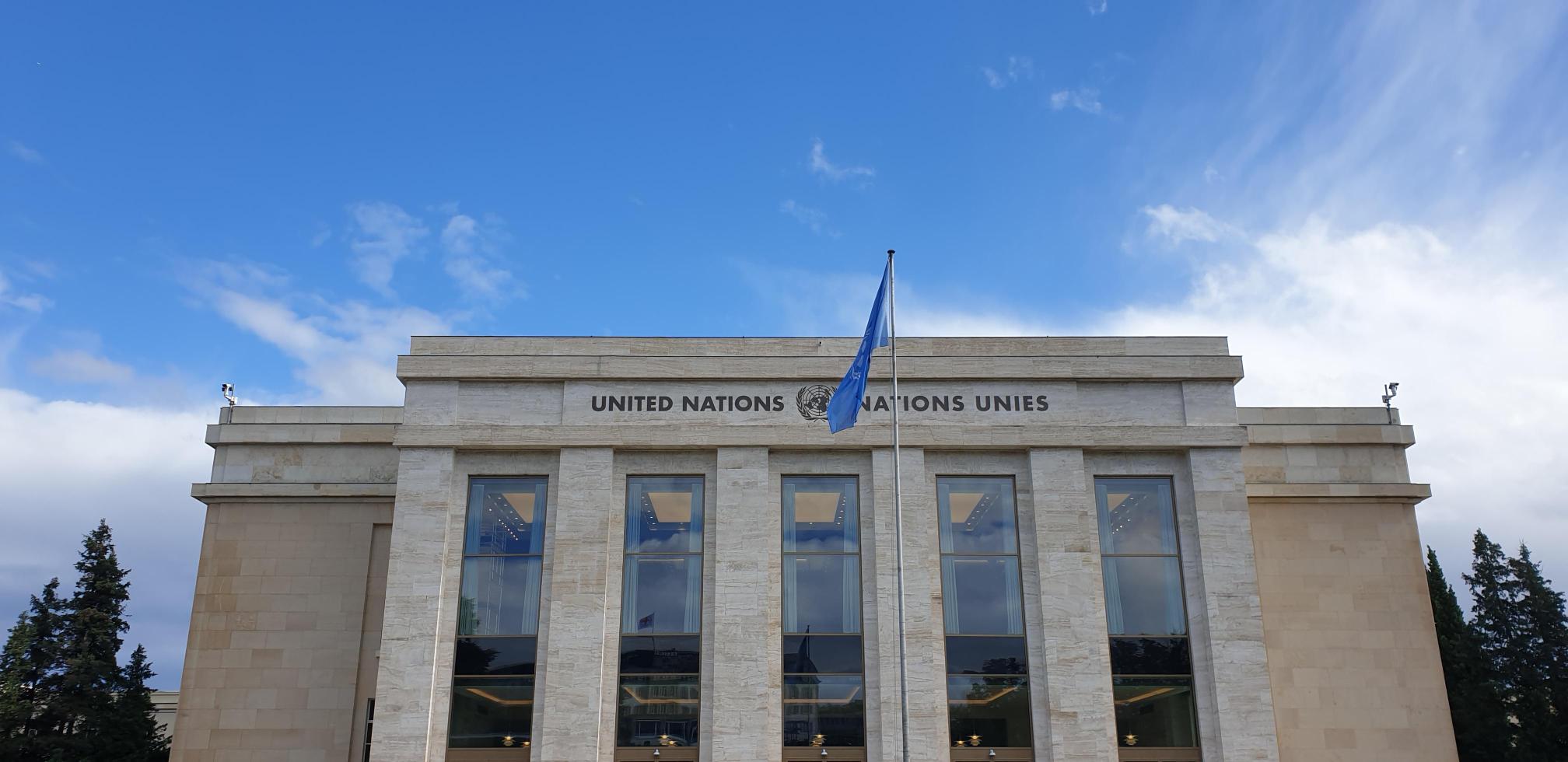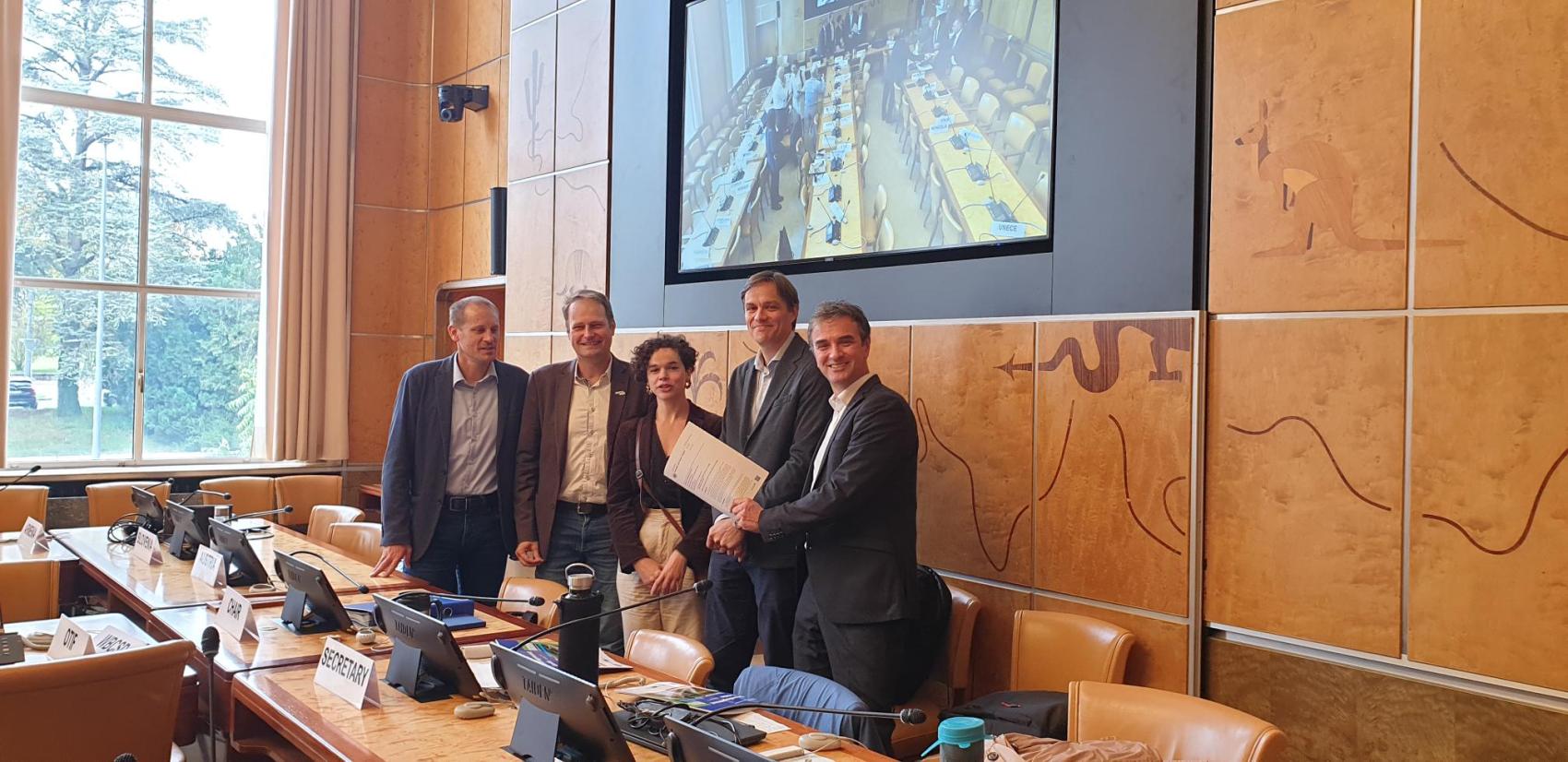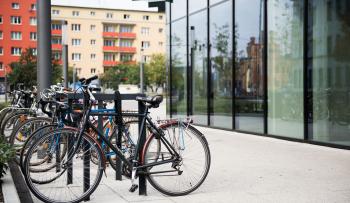
UN recognition for cycling networks: UNECE adopts guide and recommendations
On 27 September, the United Nations Economic Commission for Europe (UNECE) adopted the Guide for Designating Cycle Route Networks, marking a crucial milestone in the international recognition of cycling infrastructure and cycle route networks. This follows two years of fruitful collaboration within the Group of Experts on Cycling Infrastructure, of which the European Cyclists' Federation (ECF) is an active member.
During its annual meeting, the Working Party on Transport Trends and Economics (WP5) invited all Member States to further develop national cycle route networks and requested that other international bodies, namely the Global Forum for Road Traffic Safety (WP1) and The Partnership on Active Mobility (THE PEP), use the results of this work to address the need for creating a new convention on cycle route networks. What does this mean moving forward? Read on for our analysis
International convention on cycle route networks: why and what would it change?
International transport conventions on Road, Rail or Inland Water exist but there is currently no such convention on cycling. Ongoing discussions about an international convention on cycle route networks could fill the gap, recognising cycling as a fully-fledged mode of transport while defining an ECE cycle route network. The group of experts defined a draft proposal of this network, using EuroVelo as a backbone where appropriate, as well as considering national cycle route networks indicated by the Member States. The official definition and adoption of an ECE cycle route network would advance political recognition, development and prioritisation of cycle route networks at all levels, while reinforcing the international awareness of and support for EuroVelo.
At the same time, more Member States should adopt official national cycle route networks, following shared principles defined at the UN level. To facilitate this, a Guide on designation of cycle route networks has been drafted and will be published as a stand-alone UN publication very soon. Building on this, ECF has recently released a EuroVelo Development Guide, which offers detailed guidance on developing EuroVelo routes and cycle route networks in line with the UN guide.
Proposals for the harmonisation of cycling infrastructure rules and signage
During its two-year mandate, the group of experts analysed existing definitions for linear and non-linear cycling infrastructure in ECE countries to suggest modifications to two international conventions. More than twenty definitions have been established, including the well-known term “cycle track”, as well as the more debated traffic-light exemption for cyclists, or contraflow cycling. The detailed proposals are available to consult and will now be brought to the attention of the Global Forum for Road Traffic Safety (WP1) to consider modification to the 1968 Convention on Road Traffic and Convention on Road Signs and Signals. Modifying these conventions would enhance harmonisation and establish a stronger legal basis for cycling infrastructure.

The role of ECF and next steps
ECF and its members have significantly contributed to the final report on cycling infrastructure definitions and cycle route networks. This is a testament to our long-standing expertise in cycling regulation and cycle route networks, particularly considering ECF's leading role in the EuroVelo initiative.
The work also included proposals regarding the definition of a cycle, with our industry partner CONEBI taking the lead and our support coming from a user perspective. However, this initial work will need to be followed up by WP1, WP5 and THE PEP to ensure implementation. ECF is calling on Member States to support the proposals and actively contribute to elevating cycling higher in the international political agenda.
More on the topic:
- “Final report of the Group of Experts on Cycling Infrastructure Module”
- (WP.5) Working Party on Transport Trends and Economics (37th session) - 25-27 September 2024
- “UNECE to develop pro-cycling measures to double cycling levels by 2030 with ECF’s support”
- “Historic milestone: 54 countries adopt the Pan-European Master Plan for Cycling Promotion”
Contact the author
Recent news!
Contact Us
Avenue des Arts, 7-8
Postal address: Rue de la Charité, 22
1210 Brussels, Belgium









